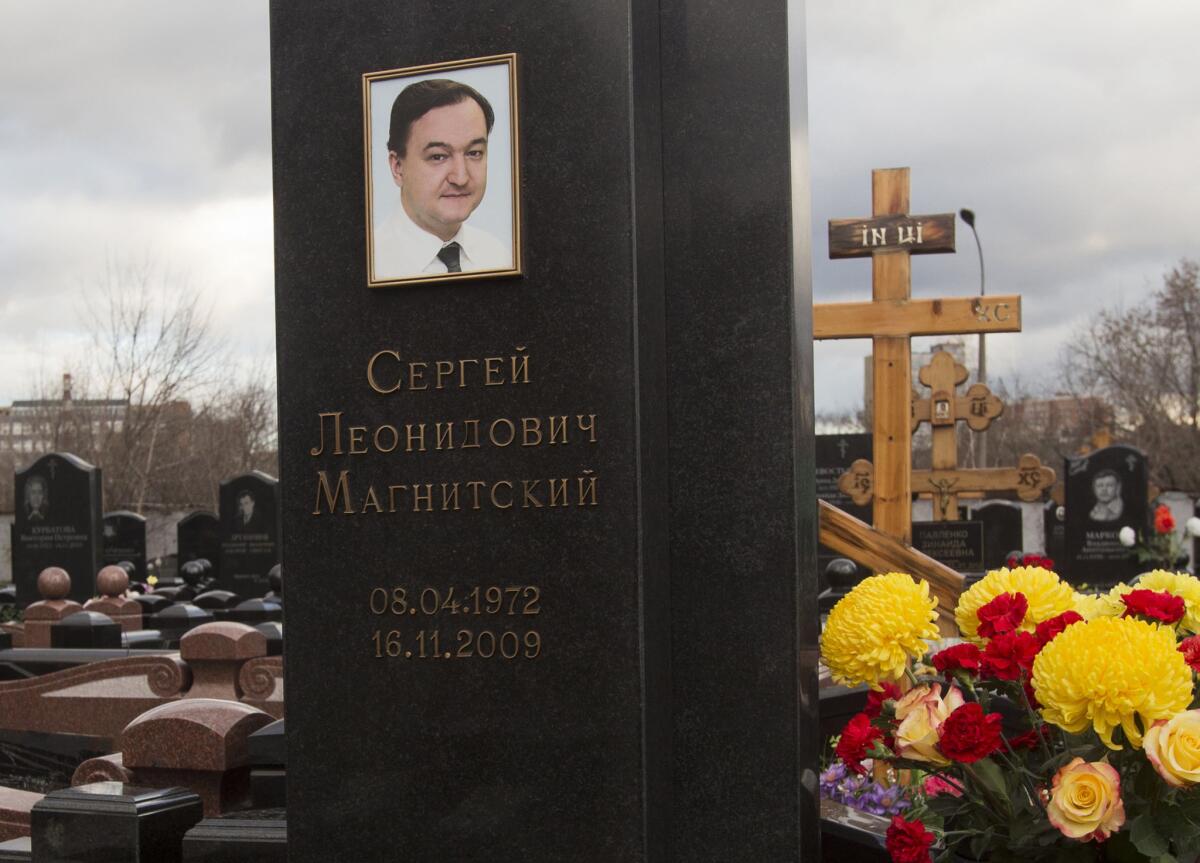Russia finds no evidence of torture in Sergei Magnitsky case

- Share via
MOSCOW — Russian investigators found no evidence of violence against a lawyer who died in custody after accusing officials and police officers of running a multimillion-dollar tax refund scam, and have ended their probe, officials said Tuesday.
Sergei Magnitsky, who worked as a legal advisor for the Hermitage Capital Management investment fund in Moscow, died in 2009 of heart insufficiency and brain and lung edema resulting from diabetes and hepatitis while in pretrial detention on tax charges, the Russian Investigative Committee said on its website.
Human rights groups had described Magnitsky’s death as suspicious and alleged that he was tortured after his 2008 arrest, denied medical treatment and beaten in the final hours of his life. Magnitsky’s arrest had followed his allegations that officials engaged in tax fraud had embezzled $230 million from state coffers.
“During Magnitsky’s stay in investigation prisons no special conditions were created for keeping him in custody different from the keeping of other prisoners under investigation, no pressure, no physical violence or torture was applied on him,” the committee’s statement said. “Thus in the course of the criminal case investigation no objective data of crimes against Sergei Magnitsky was obtained.”
The case led to a U.S. measure, the Sergei Magnitsky Rule of Law Accountability Act, signed by President Obama in December, which imposed visa restrictions and froze the U.S. bank accounts of some Russian officials. Moscow responded by banning adoption of Russian orphans by American couples.
The lawyer’s mother, Natalia Magnitskaya, called the committee’s statement Tuesday an “outright lie,” saying Magnitsky, who died at 37, was not suffering from health problems when he was arrested.
“This statement once again demonstrates that I can get no justice in Russia,” she said, adding that her lawyers had submitted the case to the European Court of Human Rights.
William Browder, chief executive of Hermitage Capital Management and Magnitsky’s former employer, said the committee’s statement said more about Russia’s reaction to the measures taken by the U.S. than about whether Magnitsky was beaten while in custody.
“The statement has nothing to do with justice,” Browder said in a phone interview from London. Russian President Vladimir “Putin is obviously upset that he can no longer protect corrupt Russian officials’ savings and property in the West, which have been challenged through the Magnitsky Act.”
The committee findings resulted from a complete investigation of the evidence, which justified ending the probe, said Sergei Markov, a member of the Public Chamber, a Kremlin advisory board.
In addition, Russia can again send a message to the U.S. that “Russia won’t tolerate any extrajudicial blacklists,” Markov said. “Russia will not allow anybody to speak to us in a language of such laws and ultimatums.”
ALSO:
Lawmakers in Cyprus reject tax on bank accounts
Suicide bomber in northwest Pakistan courthouse kills four others
More to Read
Sign up for Essential California
The most important California stories and recommendations in your inbox every morning.
You may occasionally receive promotional content from the Los Angeles Times.













